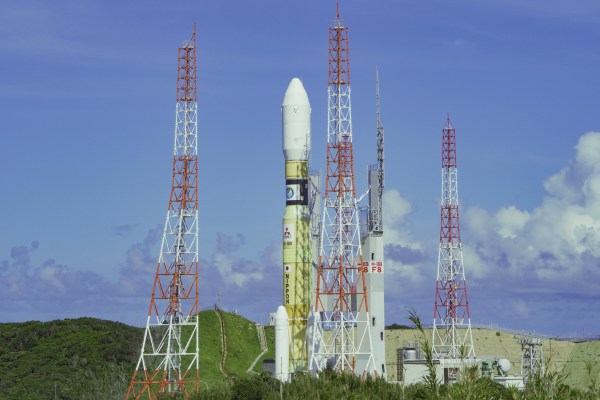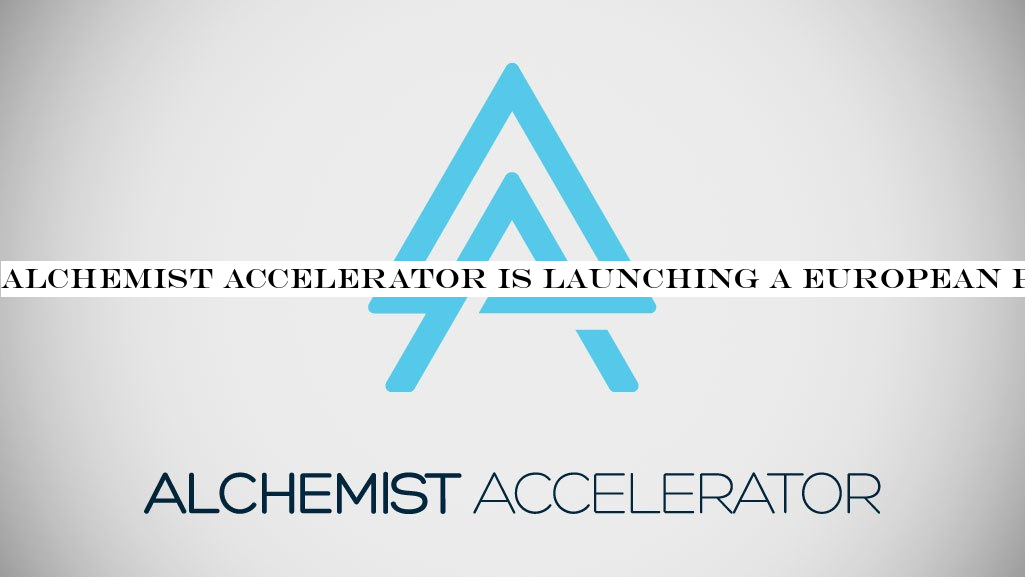Music
Trailers
DailyVideos
India
Pakistan
Afghanistan
Bangladesh
Srilanka
Nepal
Thailand
StockMarket
Business
Technology
Startup
Trending Videos
Coupons
Football
Search
Download App in Playstore
Download App
Best Collections
Technology

After a setback last week due to a fire on the launch pad, Mitsubishi Heavy Industries (MHI) is ready to take another shot at its HTV-8 mission to deliver supplies and other payloads to the International Space Station. The launch was originally scheduled for September 11, but the fire caused a scrub and led to a subsequent investigation to determine the cause. The new window is an instantaneous one set for 1:30 AM JST on September 24 (12:30 PM/ 9:30 PM ET/PT on September 23).
The investigation has now revealed that the fire, which was extinguished and resulted in no lasting damage to the rocket or its cargo, was most likely caused by built-up static electricity created by oxygen dripping from the exhaust for tof the rocket engine during propellant feeling. MHI has taken the steps necessary to correct for this problem, and say that the rocket and launch facilities are now fully functional and ready to go for this renewed launch attempt.
The H-IIB rocket used for this launch (the configuration of MHIM-II series rocket that has the highest lift capacity) will carry supplies, as mentioned, as well as a cubesat launcher with a number of small satellite payloads for various academic and commercial customers. The H-IIB features one central booster and engine with liquid oxygen propellant, and four solid fuel boosters attached to the base of the rocket for additional lift. It can transfer up to 18,000 lbs to geostationary transfer orbit.
This is the second to last mission for the H-IIB, with its final mission planned for next year. After that, MHI has been hard at work on the H3, a fully expendable launch vehicle currently under development thatspecifically aimed at serving more commercial customers with total launch costs that are more or less on par with emerging competitors like SpaceX for medium heavy payloads.
- Details
- Category: Technology
Read more: Mitsubishi Heavy Industries resets ISS objective H-IIB rocket launch for September 24
Write comment (93 Comments)
Lookiero, the online personal shopping service for clothes and accessories, has closed a $19 million funding round led by London-based VC MMC Ventures with support from existing investor All Iron Ventures, and new investors Bonsai Partners, 10x and Santander Smart. The company will use the backing to expand in its main markets of Spain, France and the UK. In June last year it closed a funding round of €4 million led by All Iron Ventures.
The startup applies algorithms to a database of personal stylists and customer profiles to thus provide a personalized online shopping experience to its customers. It then delivers a selection of five pieces of clothing or accessories curated by a personal shopper to fit the customerindividual size, style, and preferences. Customers then decide which items to keep or return (at no additional cost), allowing Lookiero to learn more about the customertase before starting the whole process again.
By generating look-a-like profiles and analyzing previous customer interactions with each item, Lookiero says it can predict how likely a user is going to keep a certain item from a range of more than 150 European brands from a warehousing system that will ship more than 3 million items of clothing this year to seven European countries.
Itnot unlike the well—worn Birchbox model. Lookieromain competitor is Stitch Fix (US), which has upwards of $1.5bn in annual revenues and IPO&d November 2017.
Founded in 2015 by Spanish entrepreneur Oier Urrutia, the company says it now has over 1 million registered users and has grown revenue by over 200% from 2017 to 2018.
In a statement Urrutia said: &This investment round provides us with the necessary capital to further increase the accuracy of our technology, which is really exciting. It will allow us to offer the best possible experience for our users and to continue expanding across Europe.&
Simon Menashy, Partner, MMC Ventures, said: &The migration of fashion brands online has improved consumers& access to clothing, and there is now an almost overwhelming amount of choice. At the same time, it can still be really hard to find exactly what is right for you, especially with high street retail stores in decline. Lookiero provides the best of both worlds, giving every customer a hand-picked selection from their personal stylist.&
Ander Michelena, co-founding partner of All Iron Ventures, said: &Even if what Oier and his team have achieved to date is remarkable, we believe that Lookiero still has great potential to continue expanding internationally and to become a player of reference in a market segment where there is still a lot to do in terms of innovation and user satisfaction&.
- Details
- Category: Technology
Read more: Lookiero closes $19M led by MMC Ventures to be the Stitch Fix for Europe
Write comment (100 Comments)You don&t see a startup get a $50 million seed round all that often, but such was the case with Vianai, an early stage startup launched by Vishal Sikka, former Infosys managing director and SAP executive. The company launched recently with a big check and a vision to transform machine learning.
Just this week, the startup had a coming out party at Oracle Open World where Sikka delivered one of the keynotes and demoed the product for attendees. Over the last couple of years, since he left Infosys, Sikka has been thinking about the impact of AI and machine learning on society and the way it is being delivered today. He didn&t much like what he saw.
Itworth noting that Sikka got his Ph.D. from Stanford with a specialty in AI in 1996, so this isn&t something thatnew to him. Whatchanged, as he points out, is the growing compute power and increasing amounts of data, all fueling the current AI push inside business. What he saw when he began exploring how companies are implementing AI and machine learning today, was a lot of complex tooling, which in his view, was far more complex than it needed to be.
He saw dense Jupyter notebooks filled with code. He said that if you looked at a typical machine learning model, and stripped away all of the code, what you found was a series of mathematical expressions underlying the model. He had a vision of making that model-building more about the math, while building a highly visual data science platform from the ground up.
The company has been iterating on a solution over the last year with two core principles in mind: explorability and explainability, which involves interacting with the data and presenting it in a way that helps the user attain their goal faster than the current crop of model-building tools.
&It is about making the system reactive to what the user is doing, making it completely explorable, while making it possible for the developer to experiment with whathappening in a in a way that is that is incredibly easy. To make it explainable, means being able to go back and forth with the data and the model, using the model to understand the phenomenon that you&re trying to capture in the data,& Sikka told TechCrunch.
He says the tool isn&t just aimed at data scientists, itabout business users and the data scientists sitting down together and iterating together to get the answers they are seeking, whether itfinding a way to reduce user churn or discover fraud. These models do not live in a data science vacuum. They all have a business purpose, and he believes the only way to be successful with AI in the enterprise is to have both business users and data scientists sitting together at the same table working with the software to solve a specific problem, while taking advantage of one anotherexpertise.
For Sikka, this means refining the actual problem you are trying to solve. &AI is about problem solving, but before you do the problem solving, there is also a [challenge around] finding and articulating a business problem that is relevant to businesses and that has a value to the organization,& he said.
He is very clear, that he isn&t looking to replace humans, but instead wants to use AI to augment human intelligence to solve actual human problems. He points out that this product is not automated machine learning (AutoML), which he considers a deeply flawed idea. &We are not here to automate the jobs of data science practitioners. We are here to augment them,& he said.
As for that massive seed round, Sikka knew it would take a big investment to build a vision like this, and with his reputation and connections, he felt it would be better to get one big investment up front, and he could concentrate on building the product and the company. He says that he was fortunate enough to have investors who believe in the vision, even though as he says, no early business plan survives the test of reality. He didn&t name specific investors, only referring to friends and wealthy and famous people institutions. A company spokesperson reiterated they were not revealing a list of investors at this time.
For now, the company has a new product and plenty of money in the bank to get to profitability, which he states is his ultimate goal. Sikka could have taken a job running a large organization, but like many startup founders, he saw a problem, and he had an idea how to solve it. That was a challenge he couldn&t resist pursuing.
- Details
- Category: Technology
Read more: Vianai emerges with $50M seed and a mission to simplify machine learning tech
Write comment (98 Comments)
Enterprise-focused startup accelerator Alchemist is expanding its footprint this morning with the launch of an initiative focused on European startups.
While Alchemist was happy to accept European companies into their US program before — they tell me they&ve had about 25 European startups go through Alchemist already — it hasn&t been a focus.
With the aptly named Alchemist Europe, Alchemist will be opening up an office in Munich and bringing in its first Europe-focused cohort. Alchemist expects this first class of companies to debut with its first Europe Demo Day sometime in early 2020.
Like Alchemist US, Alchemist Europe will focus on enterprise companies and teams that make their money from corporations. More specifically, Alchemist says in its announcement of the program that the European base will specialize in &Industry 4.0, robotics, mobility, power generation and distribution, industrial artificial intelligence and virtual reality&
Ethan Prater, formerly the VP of Product for Castlight Health, will be heading up the Europe division as its Managing Director.
So why expand now? Alchemist US managing director Ravi Belani tells me its because they&ve now built out their network and internal software to sufficiently support European companies &with the full experience of the US program, remotely.&
And it helps that they&ve found a pretty significant partner in the region. Alchemist is building out this European initiative in a partnership with Next47 — the VC/investing arm of European mega co. Siemens, which also happens to be headquartered in Munich.
I&m told Next47 has committed $2.5 million to Alchemist as part of the deal, and has reserved an additional $2.5 million for potential further investment.
Alchemist Accelerator in the US, meanwhile, is just about to wrap up its latest class. It&ll host its 22nd demo day today, with 23 companies launching in all. They&ll have a livestream of the event here, with presentations beginning at 3 PM Pacific.
- Details
- Category: Technology
Read more: Alchemist Accelerator is introducing a European program
Write comment (99 Comments)
Google announced today that it was investing 3 billion euro (approximately $3.3 billion USD) to expand its data center presence in Europe. Whatmore, the company pledged the data centers would be environmentally friendly.
This new investment is in addition to the $7 billion the company has invested since 2007 in the EU, but todayannouncement was focused on Google commitment to building data centers running on clean energy, as much as the data centers themselves.
In a blog post announcing the new investment, CEO Sundar Pichai, made it clear that the company was focusing on running these data centers on carbon-free fuels, pointing out that he was in Finland today to discuss building sustainable economic development in conjunction with a carbon-free future with prime minister Antti Rinne.
Of the 3 billion Euros, the company plans to spend, it will invest 600 million to expand its presence in Hamina, Finland, which he wrote &serves as a model of sustainability and energy efficiency for all of our data centers.& Further, the company already announced 18 new renewable energy deals earlier this week, which encompass a total of 1,600-megawatts in the US, South America and Europe.
In the blog post, Pichai outlined how the new data center projects in Europe would include some of these previously announced projects:
Today I&m announcing that nearly half of the megawatts produced will be here in Europe, through the launch of 10 renewable energy projects. These agreements will spur the construction of more than 1 billion euros in new energy infrastructure in the EU, ranging from a new offshore wind project in Belgium, to five solar energy projects in Denmark, and two wind energy projects in Sweden. In Finland, we are committing to two new wind energy projects that will more than double our renewable energy capacity in the country, and ensure we continue to match almost all of the electricity consumption at our Finnish data center with local carbon-free sources, even as we grow our operations.
The company is also helping by investing in new skills training, so people can have the tools to be able to handle the new types of jobs these data centers and other high tech jobs will require. The company claims it has previously trained 5 million people in Europe for free in crucial digital skills, and recently opened a Google skills hub in Helsinki.
Itobviously not a coincidence that company is making an announcement related to clean energy on Global Climate Strike Day, a day when people from around the world are walking out of schools and off their jobs to encourage world leaders and businesses to take action on the climate crisis. Google is attempting to answer the call with these announcements.
- Details
- Category: Technology
Read more: Google is investing $3.3B to build clean data centers in Europe
Write comment (100 Comments)
Another startup in India is cashing in on the popularity of WhatsApp, the most popular app in the country with more than 400 million users, to build a business around it.
Digi-Prex is a seven-month old startup that runs an eponymous online subscription pharmacy in Hyderabad and serves patients with chronic diseases. Patients share their prescription with Digi-Prex through WhatsApp and the startupworkers then deliver the medication to them on a recurring cycle.
Delivery is not the only thing Digi-Prex is trying to provide. It helps patients better track when they need a new supply of medicine, and checks if they are seeing improvements. The startup has amassed thousands of customers in Hyderabad, Samarth Sindhi, founder of Digi-Prex, told TechCrunch in an interview.
Digi-Prex just closed its seed round from a range of highly-influential VC firms. Italso one of the largest seed financing rounds for an Indian startup.
The startup has raised $5.5 million from Khosla Ventures, Vedanta Capital, Y Combinator, Quiet Capital, and SV Angel. Justin Mateen, a founder of Tinder, also participated in the round, said Sindhi.
&Instead of trying to acquire customers online, we work with physicians and pharmacies to serve customers,& said Sindhi, an alum of Brown University who worked with a healthcare firm in the U.S. before returning to India. The startup shares some margin with physicians and pharmacies, but more importantly, it says this arrangement works for everyone because it is able to serve customers who are living at distant neighborhoods.
Digi-Prex works directly with medicine distributors to secure supplies at lower costs. It then undercuts the pricing of over-the-top counters, providing medicines to its customers at discounted rates.
Sindhi said the startup will use the fresh capital to expand its business to 10 cities in India, and find ways to be more useful to the patients. Some of the things that Digi-Prex is working on includes providing patients with access to better physicians and offering them more information about their disease.
Itnot surprising why Digi-Prex is using WhatsApp as a distribution platform. &When I returned to India, I was fascinated by how nobody was texting anymore. Everyone was doing everything on WhatsApp,& he said.
WhatsApp, which is already the most popular app in India, is increasingly finding business applications in the country. Vahan, another Y Combinator-backed startup, is using WhatsApp to help white-collar workers find jobs with logistics companies.
- Details
- Category: Technology
Page 836 of 5614

 9
9





